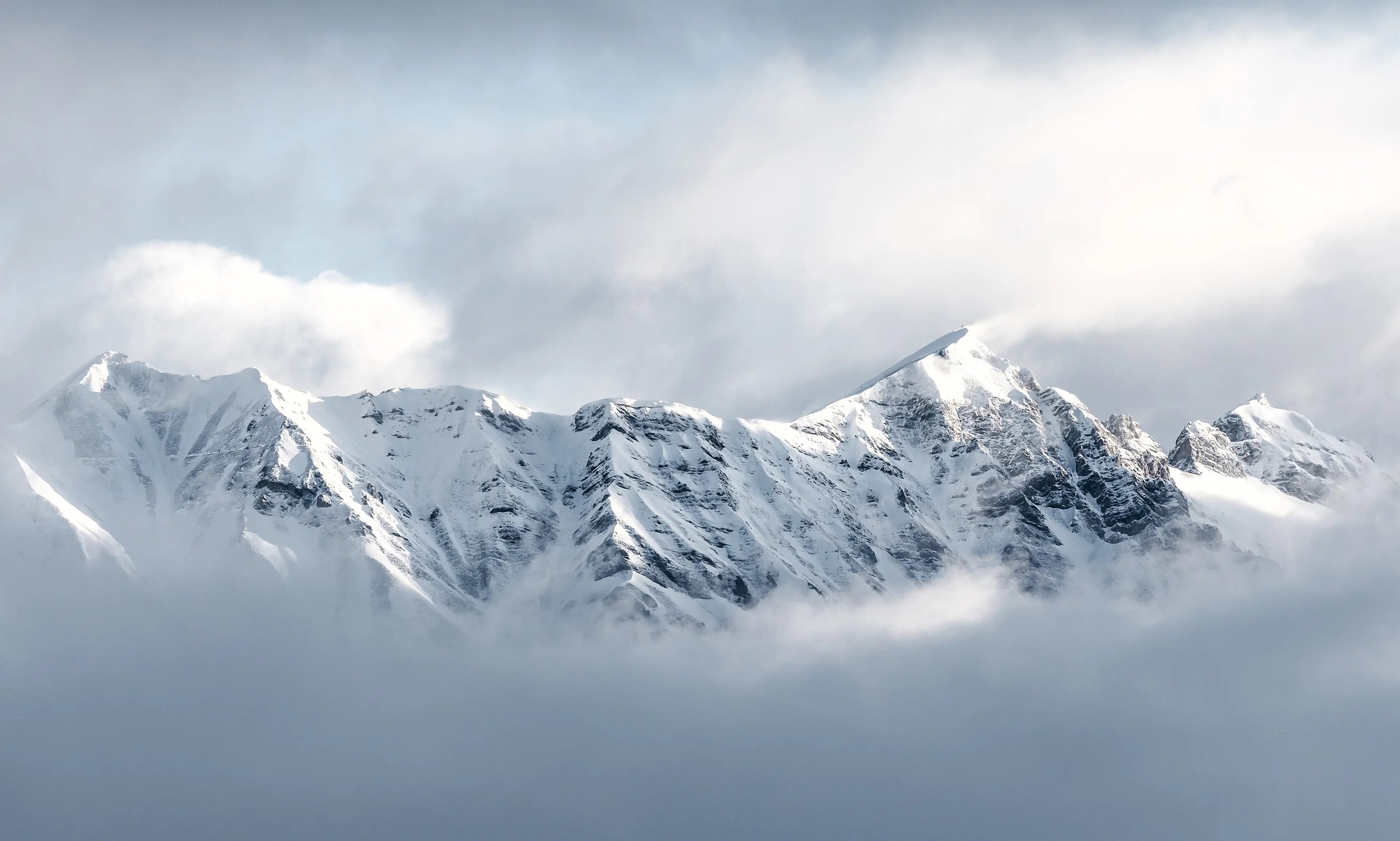1-Day Innsbruck Adventure & Nightlife Itinerary for Locals and Friends
Innsbruck, Austria
1 days
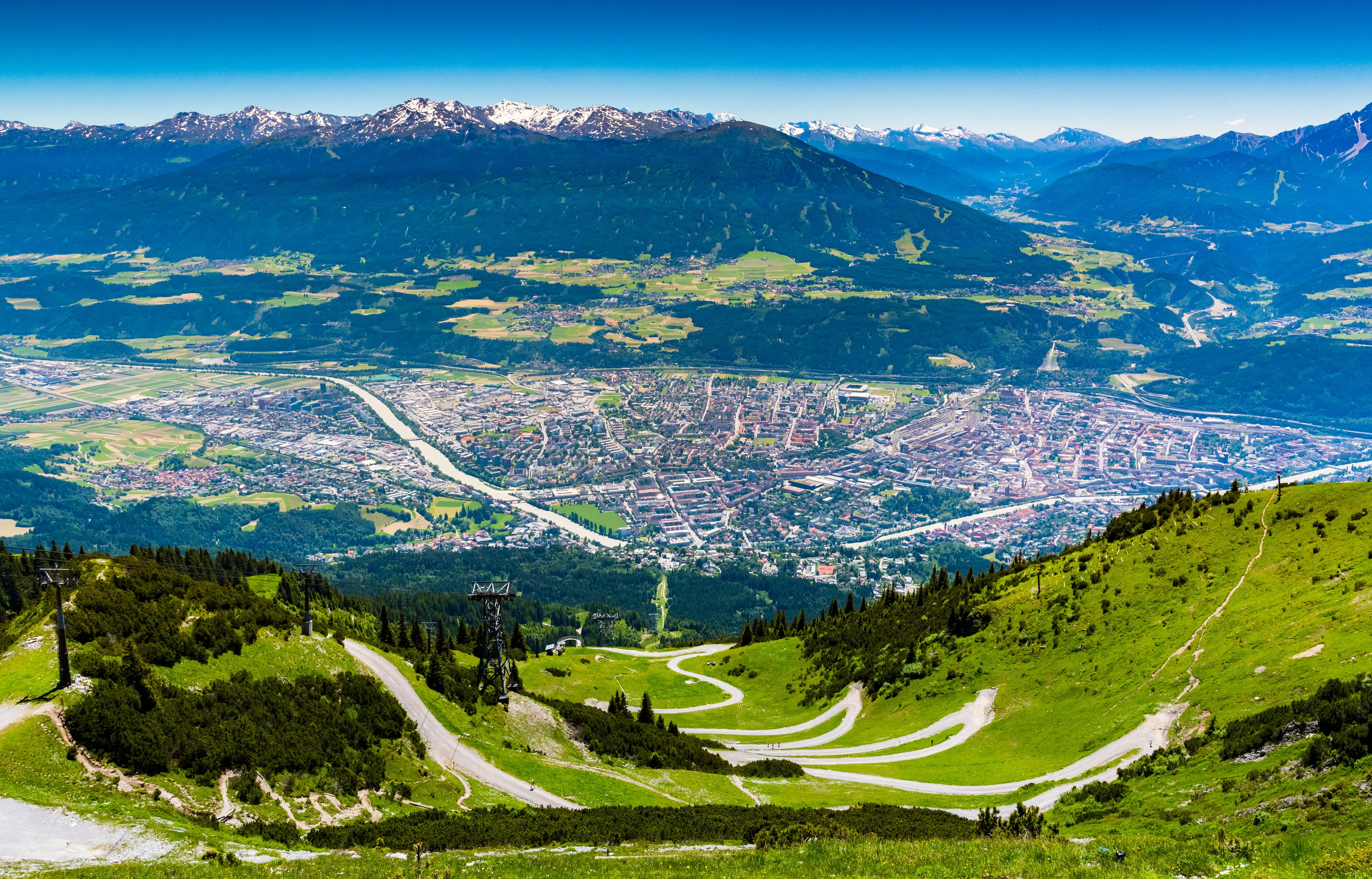

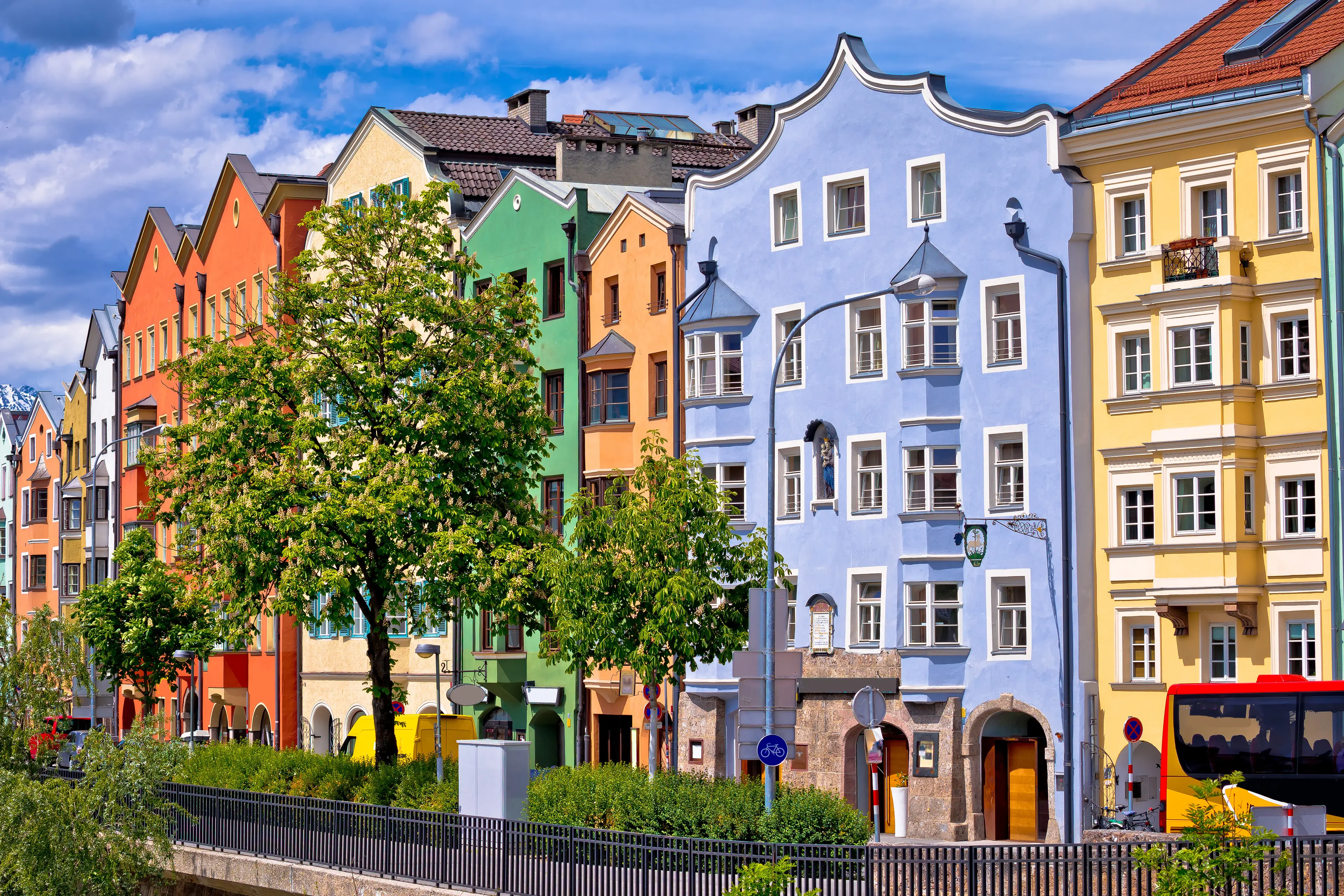
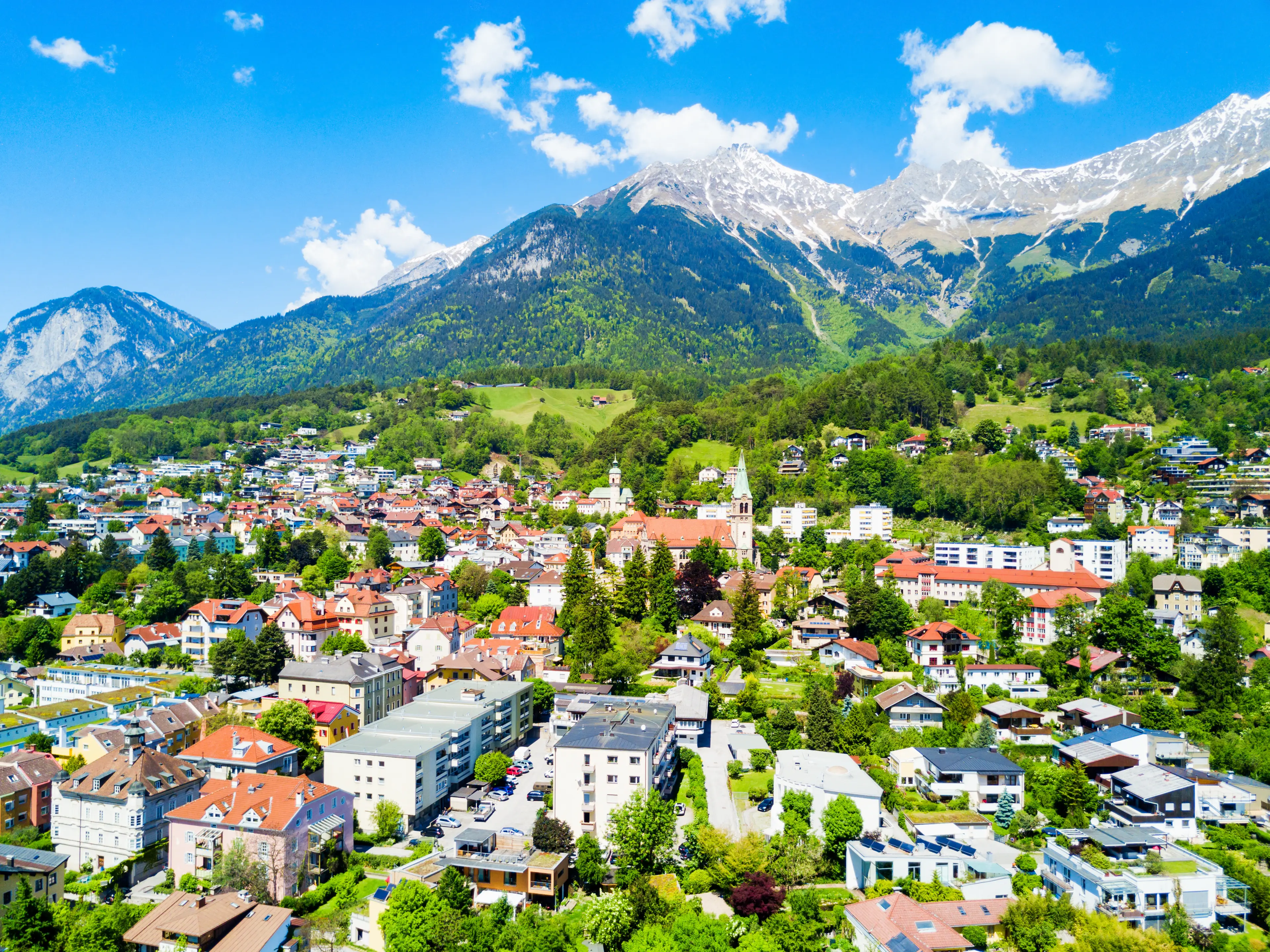
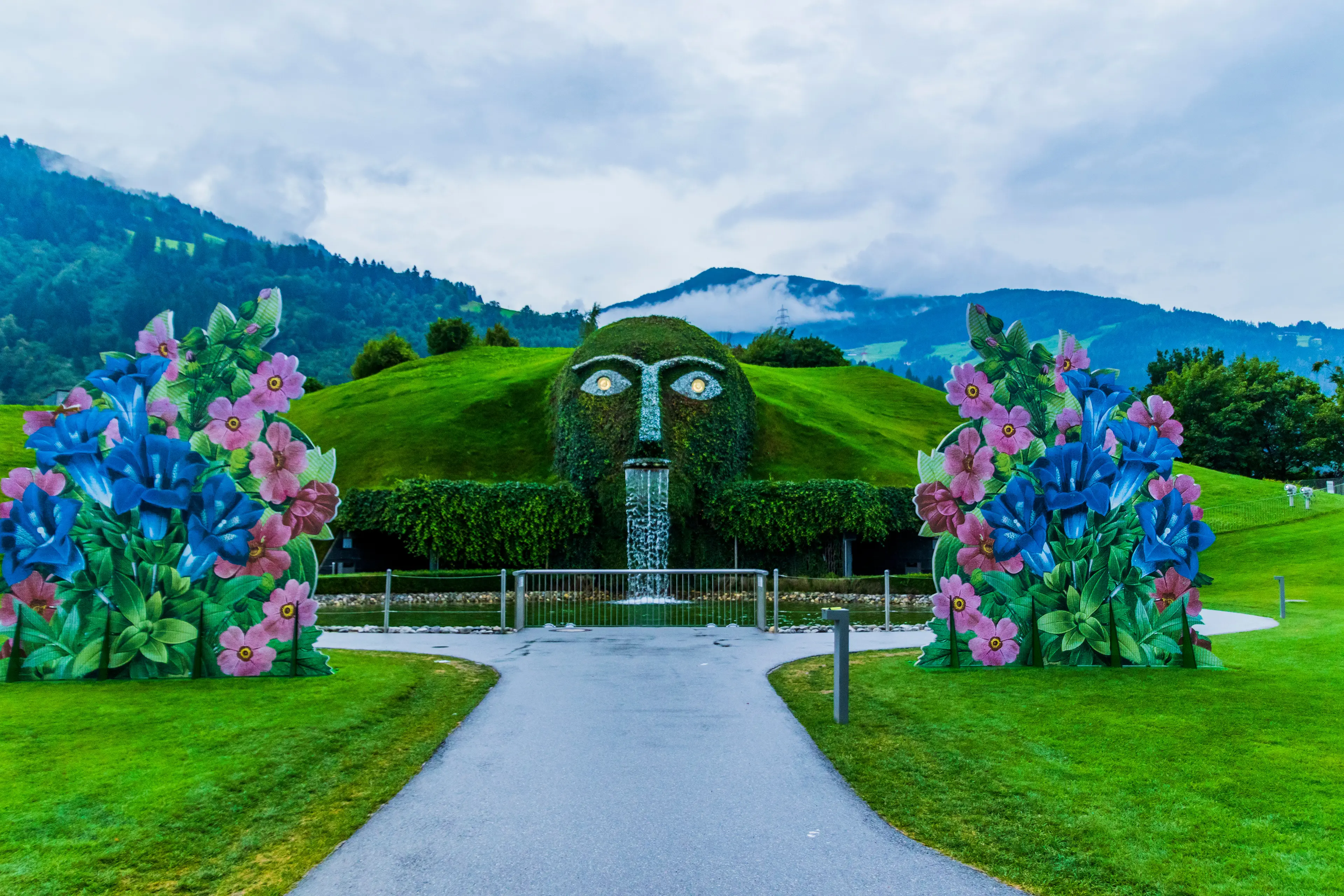
About Innsbruck, Austria
Nestled in the heart of the Austrian Alps, Innsbruck is a charming city that effortlessly blends urban sophistication with alpine beauty. As the capital of Tyrol, it offers a rich history, vibrant culture, and stunning natural landscapes. Explore the medieval Old Town, with its iconic Golden Roof and Imperial Palace, or take a cable car up to the Nordkette mountain range for breathtaking panoramic views. In winter, enjoy world-class skiing and snowboarding, while summer offers hiking, mountain biking, and climbing. Don't miss the Swarovski Crystal Worlds, a magical art and sensory experience. With its delightful mix of traditional Tyrolean cuisine and international flavors, Innsbruck is a gastronomic delight. Whether you're an outdoor enthusiast, history buff, or foodie, Innsbruck promises an unforgettable Austrian adventure.
1-Day Itinerary
Attractions in Itinerary (5)
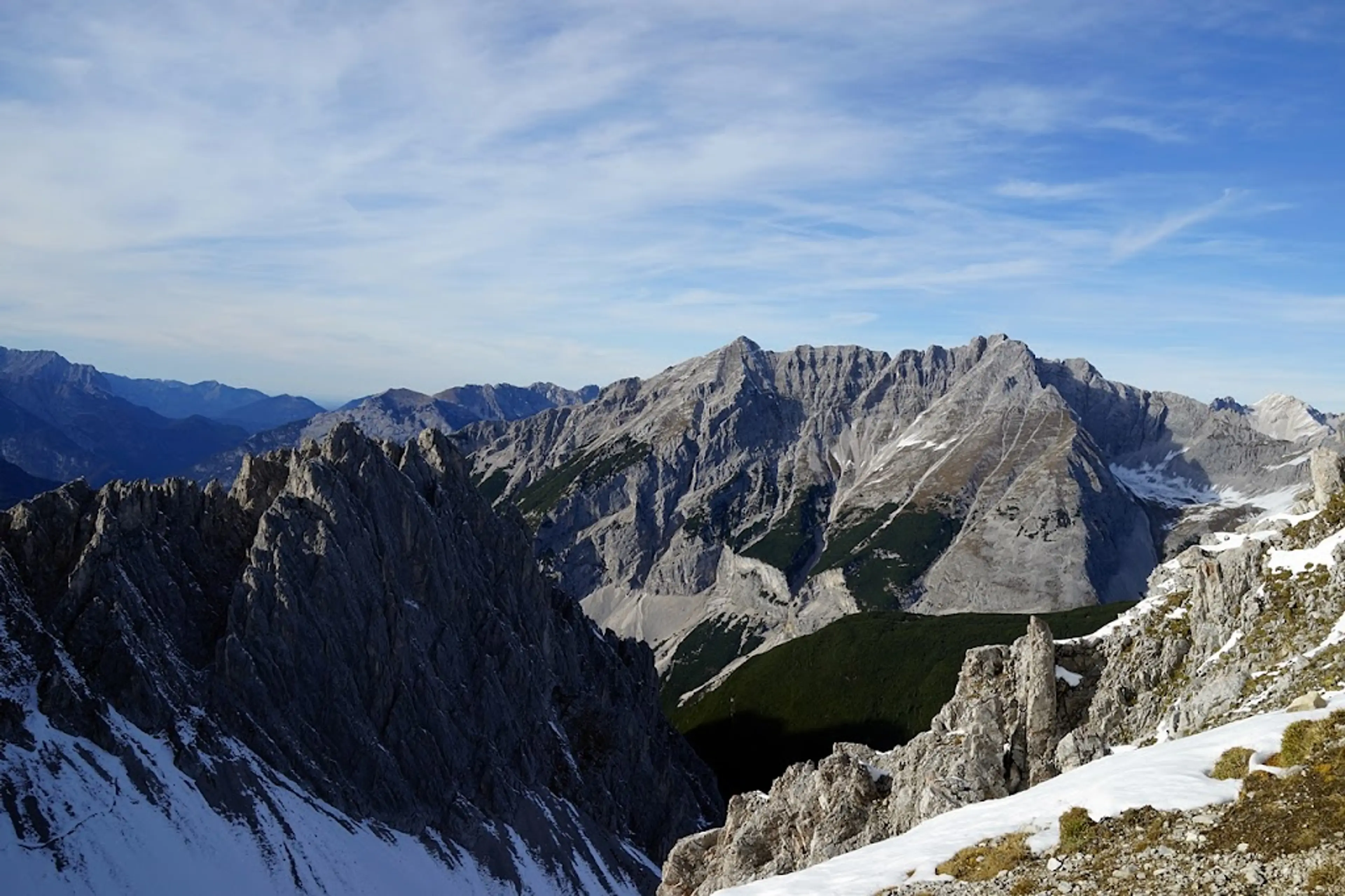
1Nordkette
A part of Austria's largest nature park, the Karwendel Nature Park, offering hiking, skiing, and breathtaking views of Innsbruck.

2Golden Roof
A landmark structure located in the Old Town, decorated with 2,657 fire-gilded copper tiles for Emperor Maximilian I to mark his wedding.

3Imperial Palace
The Imperial Palace in Innsbruck, Austria, is a significant cultural building. The palace was the residence of the Habsburgs and symbolizes their power and influence in the region. It is one of the three most important cultural buildings in the country.

4Court Church
The Court Church, also known as Hofkirche, is a Gothic church located in the Altstadt (Old Town) section of Innsbruck. The church was built in 1553 by Emperor Ferdinand I as a memorial to his grandfather Emperor Maximilian I, whose cenotaph within boasts a remarkable collection of German Renaissance sculpture. The church also contains the tomb of Andreas Hofer, Tyrol's national hero.

5Maria-Theresien-Strasse
Maria-Theresien-Strasse is one of the busiest and most charming streets in Innsbruck. It's filled with shops, cafes, and restaurants, and is a great place to experience the local culture and architecture.
Local Food and Drinks (12)

Tiroler Gröstl
A hearty dish popular in Innsbruck, made from pan-fried potatoes, onions, and chunks of pork or beef, often topped with a fried egg.

Käsespätzle
A local favorite in Innsbruck, this is Austria's version of mac and cheese, made with small egg noodles and a variety of cheeses.

Speckknödel
A traditional Tyrolean dish, these are bread dumplings mixed with pieces of speck, a type of smoked ham, often served in a broth.

Marillenknödel
A sweet treat from Innsbruck, these are dumplings filled with apricots and covered in breadcrumbs and powdered sugar.

Apfelstrudel
A classic Austrian dessert, this is a pastry filled with apples, sugar, and cinnamon, often served with a dusting of powdered sugar.

Sachertorte
A famous Viennese chocolate cake, it has a layer of apricot jam and is topped with a dark chocolate icing.

Kaiserschmarrn
A fluffy shredded pancake, this dessert is a favorite in Innsbruck, often served with powdered sugar and apple or plum compote.

Tafelspitz
A traditional Austrian dish, it is boiled beef in broth, served with a mix of minced apples and horseradish.

Wiener Schnitzel
A popular dish in Austria, it is a breaded and pan-fried veal cutlet, often served with a slice of lemon and parsley.

Stelze
A specialty of Innsbruck, this is a roasted pork knuckle, often served with sauerkraut and bread dumplings.

Schnapps
A traditional Austrian distilled spirit, it comes in a variety of flavors, including apple, pear, and plum.

Stiegl Beer
This crisp and refreshing lager beer is popular throughout Austria and is perfectly refreshing after a day of sightseeing.
Best time to visit
The best time to visit Innsbruck, Austria largely depends on what you want to do. If you're interested in winter sports like skiing or snowboarding, the best time to visit is between December and March when the snow conditions are optimal. However, if you're more interested in hiking, sightseeing, and enjoying the city's rich history and culture, the best time to visit is between May and September when the weather is warm and the days are longer. The city is particularly beautiful in the spring (May-June) when the alpine flowers are in bloom, and in the fall (September-October) when the leaves change color.
How to get around
Public Transportation
Innsbruck's public transportation system, IVB, is very efficient and reliable. It includes trams, buses, and a funicular railway. The tram network is extensive and covers most of the city. The buses are perfect for reaching destinations outside the tram network. The Nordkettenbahn funicular railway is a unique way to travel from the city center to the Nordkette mountain range.
Taxi
Taxis are readily available throughout Innsbruck. They can be hailed on the street, booked in advance, or picked up from designated taxi ranks. They offer a convenient and comfortable way to get around, especially if you're traveling with luggage or in a group.
Ridesharing
Innsbruck supports ridesharing services such as Uber. This can be a convenient and cost-effective way to get around the city, especially if you're familiar with the service. Simply download the app, input your destination, and wait for your ride to arrive.
Bicycle
Innsbruck is a bike-friendly city with numerous bike lanes and paths. The city offers a bike rental service, Bike City Innsbruck, which allows you to rent a bike for a few hours or a few days. This is a great way to explore the city at your own pace and get some exercise at the same time.
Car Rental
Renting a car can be a good option if you plan to explore the surrounding areas of Innsbruck. However, keep in mind that parking can be difficult in the city center and many areas are pedestrian-only. It's also important to note that Austria requires an International Driving Permit for non-EU drivers.
Walk
Innsbruck's city center is compact and pedestrian-friendly, making walking an excellent way to get around. Many of the city's top attractions, including the Golden Roof, Hofburg Palace, and the Cathedral of St. James, are within easy walking distance of each other.
Sightseer Bus
The Sightseer Bus is a hop-on, hop-off service that takes you to all of Innsbruck's major attractions. It's a convenient way to see the city, especially if you're short on time or prefer not to walk too much.
Train
Innsbruck's main train station, Innsbruck Hauptbahnhof, is well-connected to other Austrian cities and neighboring countries. This makes train travel a good option if you're planning to visit other destinations during your stay.
Important information
Currency€ EUR
Time zoneUTC+1
Driving sideRight
Emergency phone112, 122
Drinking waterYes
Power sockets
Voltage230 V
Things to know about Innsbruck, Austria as a first time visitor
1
Innsbruck is the capital city of Tyrol in western Austria and is internationally known for its winter sports.
2
The official language is German, but many locals also speak English, especially in tourist areas.
3
The currency used in Innsbruck is the Euro (€). Credit cards are widely accepted, but it's always good to have some cash on hand.
4
Innsbruck has a temperate climate. Summers (June to August) are warm with temperatures ranging from 60°F to 75°F (15°C to 24°C). Winters (December to February) are cold and snowy with temperatures often dropping below freezing.
5
Innsbruck is a safe city, but like any other tourist destination, it's always wise to be aware of your surroundings and keep your belongings secure.
6
Public transportation in Innsbruck is efficient and reliable. The city has a network of buses and trams that can take you almost anywhere in the city.
7
Tipping is customary in Innsbruck. It's common to round up to the nearest euro in cafes and bars, and to leave a 10% tip in restaurants.
8
Innsbruck is located in the Central European Time Zone (CET), which is UTC +1.
9
The city has a wide range of accommodation options, from luxury hotels to budget hostels and vacation rentals.
10
Innsbruck has a rich food culture. Be sure to try local specialties like Tiroler Gröstl (a hearty pan-fried dish) and Kaiserschmarrn (a shredded pancake dessert).
11
Innsbruck has a smoking ban in all enclosed public spaces, including bars and restaurants.
12
The city is very pedestrian-friendly, with many of the main sights within walking distance of each other.
13
Innsbruck has a vibrant nightlife with a variety of bars, clubs, and live music venues.
14
The city is surrounded by mountains, making it a great base for hiking and skiing.
15
Innsbruck has a number of supermarkets and local markets where you can buy fresh produce and local products.
16
The city's tap water is safe to drink and is of very high quality.
17
Innsbruck has a number of public Wi-Fi spots, particularly in the city center.
18
The city has a number of pharmacies (called 'Apotheke' in German) where you can buy over-the-counter medication.
19
Innsbruck has a rich history and culture, with a number of museums and galleries to explore.
20
The city is also known for its beautiful architecture, including its iconic Golden Roof and the Imperial Palace.
Basic German to know as a first time visitor
English phrase | Native phrase | Pronunciation | When to use it |
|---|---|---|---|
Hello | Hallo | Ha-lo | Greeting someone |
Goodbye | Auf Wiedersehen | Owf Veed-er-zayn | Leaving or saying goodbye |
Please | Bitte | Bit-te | Making a request |
Thank you | Danke | Dahn-ke | Expressing gratitude |
Yes | Ja | Ya | Agreeing or confirming |
No | Nein | Nine | Disagreeing or denying |
Excuse me | Entschuldigung | Ent-shool-dee-goong | Getting attention or apologizing |
I don't understand | Ich verstehe nicht | Ikh fer-shtay-he nikht | When you don't understand what was said |
Do you speak English? | Sprechen Sie Englisch? | Shprekhen zee Eng-lish | Asking if someone speaks English |
I'm lost | Ich habe mich verlaufen | Ikh hah-be mikh fer-low-fen | When you are lost |
Where is...? | Wo ist...? | Vo ist | Asking for directions |
Bathroom | Toilette | Toi-let-te | Looking for a restroom |
Help | Hilfe | Hil-fe | In case of emergency |
Food | Essen | Es-sen | Looking for a place to eat |
Water | Wasser | Vas-ser | Asking for water |
Beer | Bier | Beer | Ordering a beer |
Wine | Wein | Vine | Ordering wine |
Check, please | Die Rechnung, bitte | Dee Reh-noong, bit-te | Asking for the bill |
How much does it cost? | Wie viel kostet das? | Vee feel kos-tet das | Asking for the price |
Good night | Gute Nacht | Goo-te Nakht | Saying goodnight |
Packing List
Clothing
Comfortable walking shoes
Lightweight jacket
T-shirts
Jeans or comfortable trousers
Underwear
Socks
Pajamas
Scarf, gloves and hat (if winter)
Sunglasses
Toiletries
Travel-sized toothpaste
Toothbrush
Deodorant
Travel-sized shampoo and conditioner
Travel-sized body wash
Razor
Shaving cream
Travel-sized lotion
Sunscreen
Lip balm
Hand sanitizer
Travel documents and essentials
Passport/ID
Boarding passes
Hotel reservation confirmation
Travel insurance documents
Credit and debit cards
Cash in local currency
Emergency contact information
Map of Innsbruck
Electronics and gadgets
Smartphone
Charger for smartphone
Power bank
Headphones
Camera
Memory card for camera
Adapter plug (if needed)
Miscellaneous items
Snacks
Water bottle
Travel pillow
Earplugs
Eye mask
Travel guidebook
Notebook and pen
Umbrella
First-aid kit
Reusable shopping bag
Weather Conditions
Innsbruck, Austria, is a beautiful city with a diverse climate that changes with the seasons. Therefore, it's essential to plan your visit according to the weather conditions to make the most of your trip. In the winter months, from December to February, Innsbruck becomes a winter wonderland with temperatures often dropping below freezing, typically between 23°F to 34°F (-5°C to 1°C). This is the perfect time for winter sports enthusiasts as the city is famous for its ski resorts. Don't forget to pack your warmest clothes, including a heavy coat, gloves, scarves, and boots. Spring, from March to May, sees a gradual rise in temperature, ranging from 37°F to 64°F (3°C to 18°C). The city starts to bloom, and it's a great time to enjoy outdoor activities. Pack layers as the weather can still be quite chilly, especially in the evenings. Summer, from June to August, is warm and sunny with temperatures ranging from 59°F to 77°F (15°C to 25°C). This is an excellent time for hiking, biking, and sightseeing. Pack light clothing, but also include a light jacket or sweater for cooler evenings. Autumn, from September to November, is a beautiful season with temperatures ranging from 37°F to 64°F (3°C to 18°C). The city is adorned with fall colors, making it a picturesque time to visit. Pack a mix of light and warm clothing, as the weather can be unpredictable. Remember, Innsbruck's weather can be quite changeable, so it's always a good idea to check the forecast before your trip and pack accordingly. Enjoy your visit to this charming Austrian city!
| Month | Hi / Lo (°C) | Weather Overview |
|---|---|---|
January | 4° / -5° | January is the coldest month in Innsbruck, with temperatures often dropping below freezing. It's a great time for winter sports enthusiasts, as the ski season is in full swing. |
February | 7° / -3° | February is still quite cold, but temperatures start to rise slightly. The ski season continues, and the city is often covered in snow. |
March | 12° / 0° | March sees the beginning of spring, with temperatures rising and snow starting to melt. It's a good time to visit if you want to avoid the peak tourist season. |
April | 17° / 3° | April is a mild month, with temperatures often reaching into the teens. The city is in full bloom, making it a beautiful time to visit. |
May | 21° / 7° | May is the start of the warm season, with temperatures often reaching into the 20s. It's a great time to explore the city and the surrounding countryside. |
June | 24° / 10° | June is a warm month, with long days and plenty of sunshine. It's a great time for outdoor activities like hiking and cycling. |
July | 27° / 13° | July is the hottest month in Innsbruck, with temperatures often reaching into the high 20s. It's a great time to visit the city's parks and outdoor attractions. |
August | 27° / 13° | August is another hot month, with temperatures similar to July. It's a great time to visit the city's outdoor attractions and enjoy the warm weather. |
September | 23° / 9° | September sees the start of autumn, with temperatures starting to drop. It's a good time to visit if you want to see the city's beautiful autumn colours. |
October | 18° / 4° | October is a cool month, with temperatures often dropping into the single digits. It's a good time to visit if you want to avoid the crowds and enjoy the autumn scenery. |
November | 10° / 0° | November is a cold month, with temperatures often dropping below freezing. The city starts to prepare for the winter season, with Christmas markets opening towards the end of the month. |
December | 7° / -3° | December is a cold and festive month, with the city covered in snow and Christmas lights. It's a great time to visit if you want to experience a traditional Austrian Christmas. |
Did you know?
Places near by Innsbruck, Austria

Neuschwanstein Castle
A 19th-century Romanesque Revival palace on a rugged hill above the village of Hohenschwangau near Füssen in southwest Bavaria, Germany.

Salzburg
The birthplace of Mozart, Salzburg is a city in Austria known for its preserved baroque architecture and stunning alpine setting.

Munich
The capital of Bavaria, Munich is known for its centuries-old buildings and numerous museums.

Zell am See
A beautiful Austrian town on Lake Zell, surrounded by mountains. Known for skiing, hiking and the Romanesque St. Hippolyte's Church.

Venice
A city in northeastern Italy and the capital of the Veneto region. Known for its beautiful canals, architecture and art.

Vienna
Austria's capital, known for its Imperial palaces, including Schönbrunn, the Habsburgs’ summer residence.

Zürich
The largest city in Switzerland, known for its well-preserved medieval Old Town and beautiful Lake Zürich.

Prague
The capital city of the Czech Republic, known for its Old Town Square, colorful baroque buildings, Gothic churches and the medieval Astronomical Clock.

Budapest
The capital of Hungary, known for its iconic landmarks including the Buda Castle and the Hungarian Parliament Building.

Berlin
The capital of Germany, known for its art scene and modern landmarks like the Berliner Fernsehturm and Brandenburg Gate.
